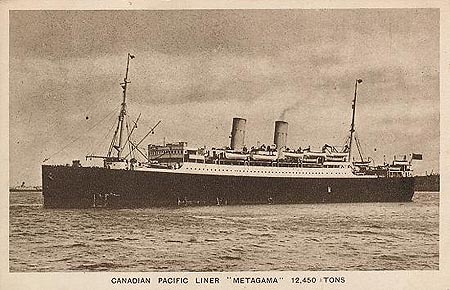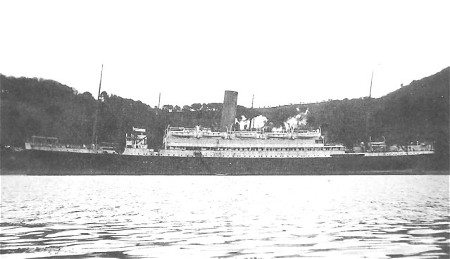|
Philias Turcott
|
||||||||||||||||||||||||||||||||||||||||||||||||||||||
|
The following is a transcript of the interview conducted on his arrival in England following his release from German custody I was wounded between 11 and 12 o’clock
at night (April
7th, 1916 at St Eloi) in an attempt to
recover the craters. I was not picked up
until early in the morning of the 11th, when I was unconscious, and the first
thing I remember is being laid on the operating table and being told that I must have my
leg, which was in a very bad state, off, the knee having been blown off. I was put under chloroform, and the operation was
successful, and for five or six days the doctors watched me day and night. I do not know their names, but one was a colonel. My arm was broken, but was properly set. On the sixth day I was moved with three German
wounded to Courtrai, Belgium, about 10 miles off. I
was well looked after in the ambulance. I
remained at Courtrai for eight days and was very well treated—first rate. The German sisters both here and in the first
hospital could not do enough for anyone, whether British or German. On the 26th April, 16 of us were placed
in an ambulance and taken to the station. We
left about 10 in the morning (Sunday) and arrived at Hannover early Tuesday morning. They treated us very well on the train. For the first four days my wounds were
dressed regularly, but after that they were left quite six days. There were no orderlies to do anything, but a
Belgian soldier did what he could for me. There were about 700 patients in the
hospital, but I only saw one doctor, who, however, did what he could for me. As regards food, in the first two
hospitals, I had whatever I wanted, but at Hannover I was hungry from morning to night. For breakfast (7 o’clock) I was given a small
slice of bread, which had to last me all day, and a cup of coffee without sugar and very
little milk; at 9 o’clock we were given a piece of pickled raw fish, at 12 o’clock
we had dinner, either a small piece of meat or fish.
At 3 o’clock we had a cup of coffee as before. Supper at 5.30: sometimes soup or a small piece of
smoked fish, or half a smoked herring. If it had not been for two English comrades
who helped me from their parcels I should practically have starved. The sanitary arrangements were very fair. There were also Russians, French, and
Belgians in the hospital at Hannover, and we were all treated alike; the English and
Canadians were put together. They gave me a
cap and overcoat (civilian) at Hannover; the Belgian sisters gave me an outfit at
Courtrai. The Germans also gave me a change of
clothes every week—shirts, drawers, stockings and handkerchiefs; they also changed
the bed-linen once a week. I did not receive
any letters or parcels. Any letters written
in hospital were read by a French interpreter to a German who looked after the mail. Men who received parcels had to sign for them, so
far as I know, they were not opened. We were
allowed to write two letters a month and four postcards. I did not see any cases of cruelty to
prisoners. We were told by a German officer
at Hannover that we were being treated in the same way as the German wounded, and would be
punished just the same as their own men if we did anything wrong. There were no rules put up that I could see. The American Ambassador did not visit any
of the hospitals I was in. I did not witness any infractions by the
enemy of the Laws and Usages of War. The interviewer, J Stewart Warless, added
the following “ the witness’ statement, in my opinion, is entirely to be relied
upon”. This is dated 27th
May, 1916 |
||||||||||||||||||||||||||||||||||||||||||||||||||||||

